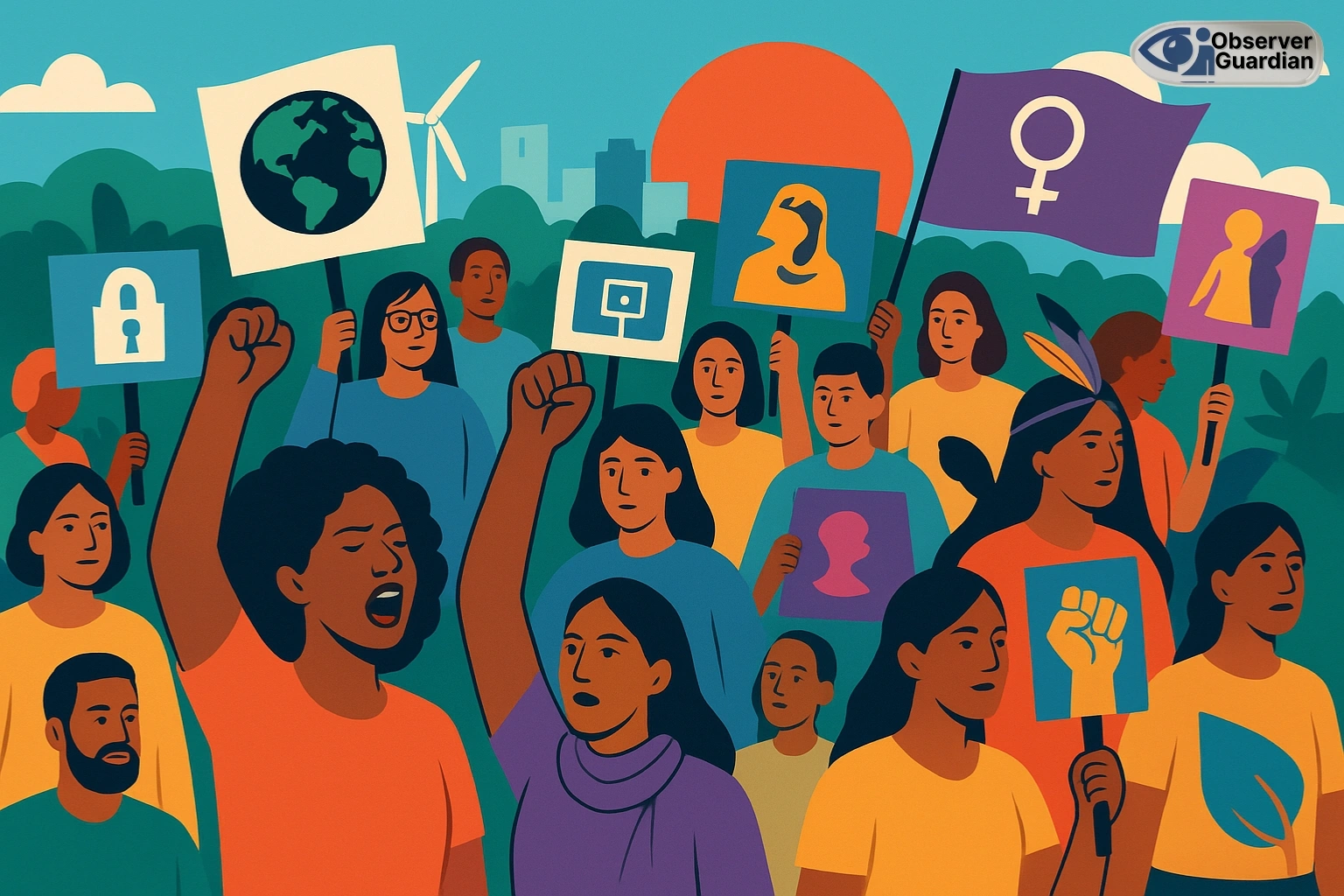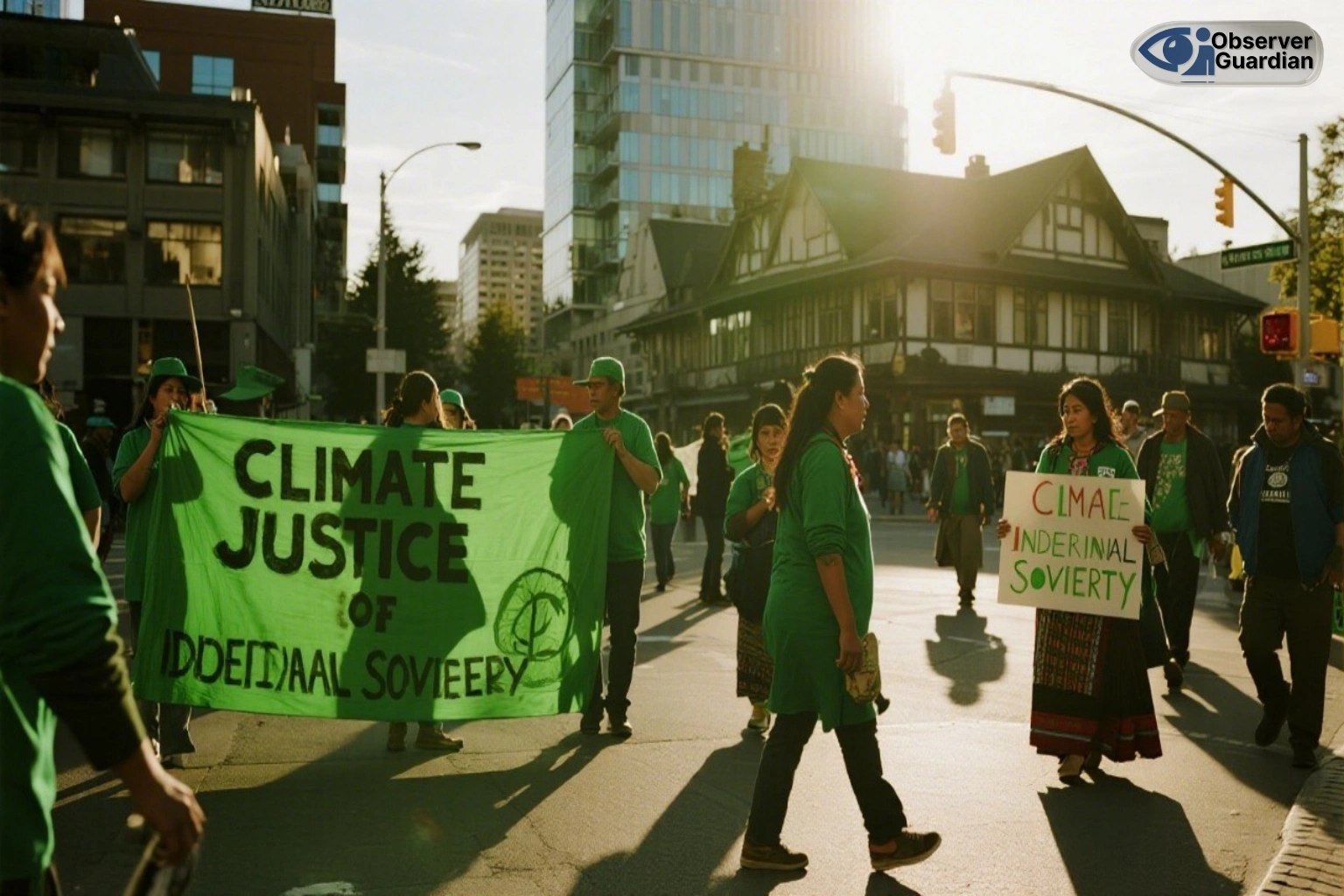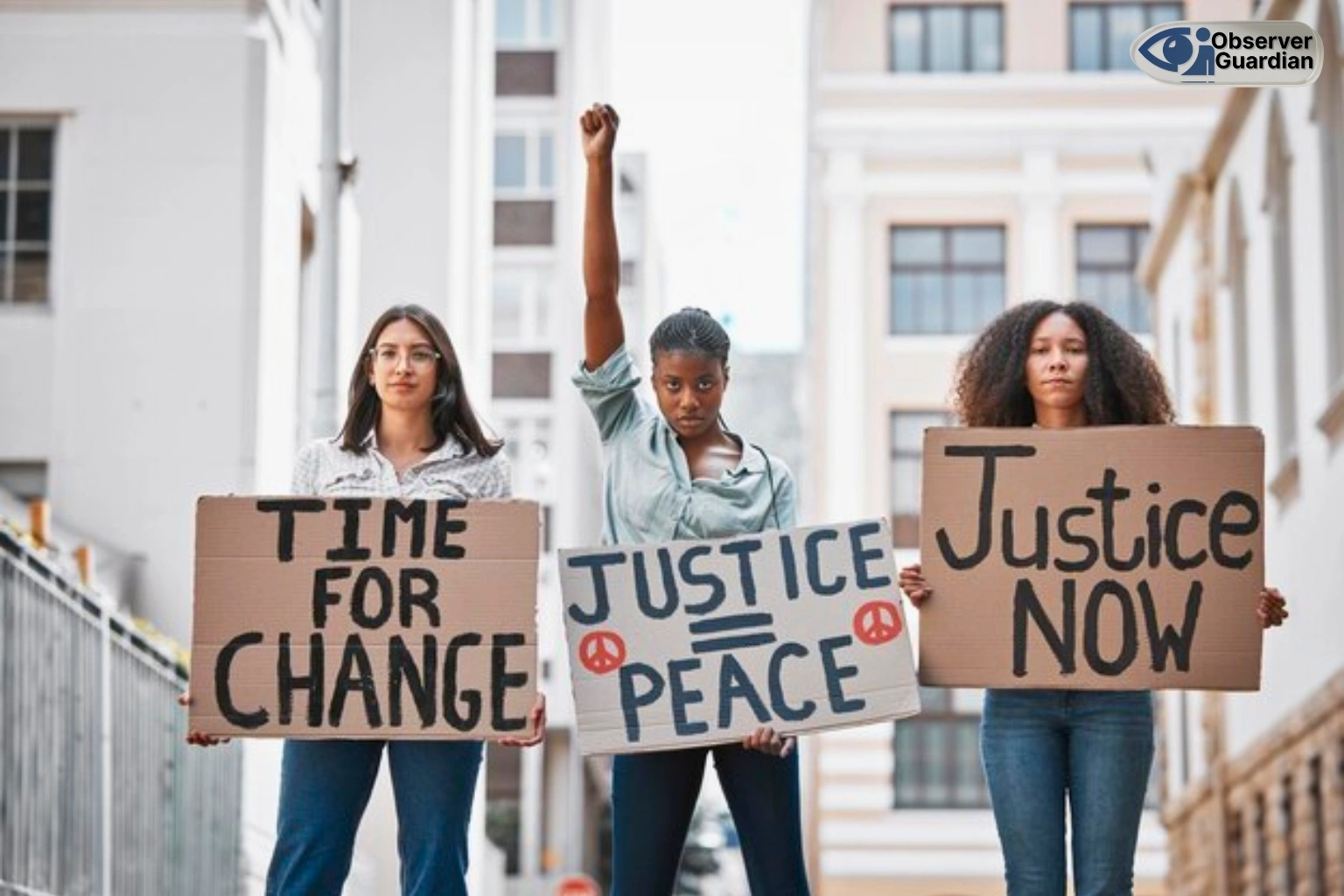By the year 2025, the social justice environment in the world is overwhelmed with new energy and power. Various movements across climate justice, digital rights, migrant equity, gender liberation, and indigenous sovereignty intertwine and transform international discourse, policy, and the strength of communities. As people speak out with one voice on different sides of the world, the year is indicating a pendulum shift where activism has become increasingly imaginative, more networked and more impactful.
A Green Beyond Environmentalism
Climate justice in 2025 goes beyond old forms of environmental advocacy. There are communities decimated by floods, wildfires and endless droughts, particularly in South Asia, the Horn of Africa and island nations including organizing around what must be done with more urgency than any single event has determined up to now. Indigenous leaders have amplified the idea of land stewardship as a means of resistance and resilience also with the youth climate groups pushing harder on climate reparation and the defense of the climate migrants.
New approaches to curbing climate change and managing the disaster, such as solar cooperatives in Latin American favelas or regenerative farming projects in sub Saharan Africa, have shown a developing demand that climate change and economic justice, racial equity, and historical redress cannot be divorced. The discourse of climate justice is defining geopolitics and law in other aspects, especially in extraordinarily impactful instances, like when members of the Pacific Islands are fighting to sue fossil fuel companies through litigation.
The New Frontier of Freedom is Digital Risks
With more aspects of lives in the arena being shaped by digital space, starting with political debates to simple commerce, the struggle to control and define digital rights has become much more intense.
In the year 2025, activists are calling to hold corporations to blame on algorithm discrimination, as well as controlling speech.
In Europe, Latin America, and Southeast Asia, technologist coalitions, journalist associations, and disenfranchised groups are demanding to know how AI systems used in hiring, policing and access to welfare, work.
Meanwhile, mass surveillance, data extraction, and mass-targeted misinformation are being confronted by digital whistleblowers and other privacy protagonists. They are turning up the pressure on the promise of a Digital Bill of Rights, and a few nations are drafting laws to make data privacy, a right to repair and open source ethics core human rights.
Borders without Barriers and Migrant Equity
Mobility is one of the most characteristic problems of the epoch. By 2025, social movements will have radically transformed the discourse around borders in ways that abandon traditional conceptions of them as lines, and instead reconceptualize the ways in which borders need to be refashioned in human rights and human dignity terms.
Mediterranean, US Mexico corridor, Southeast Asian, and Eastern Europe wide grassroots networks are giving voice to migrants, presenting tales of absorption, struggle and discrimination. Such initiatives are urging governments to pursue regularization policies, safe passage corridors and the right to work as well as creating mutual help systems that provide legal assistance, access to language and offering psychosocial services to displaced populations.
Meanwhile, art, literature, and digital storytelling are driving an attitudinal shift towards bridging the gap between the foreign and the neighbour as well as cultivating empathy as opposed to fear.
By 2025, gender justice movements have gone beyond tokenism representation. The politics of gender, race, ability, class, and sexual identity are shaped by feminist, transgender, and nonbinary activists who are urging to implement policies that represent the multifaceted reality.
Universal childcare, parental leave and comprehensive gender affirming health care are being discussed as necessary entitlements, rather than privileges.
Significantly, all around the world, in the context of the Global South, feminist leadership in economic inclusion is being asserted: in cooperatives in India, built and led by rural women, in the Indigenous women reclaiming cultural authority in the Americas. In the rest of Europe, victories are being gained in terms of self identification and bodily autonomy.
Besides, gender expansive advocates and male allies are assisting in breaking the norm of toxic masculinity. Employment training, educational enlightenment, and mental health strategies are redesigning the connotations of power, alliances, and affirmation.
Indigenous Sovereignty is Spotting and Reclaiming Stories and Space
The indigenous rights movements in the world continue to be central to the social justice cocktail of 2025. There are land title claims, language revival and cultural revival in the form of legal, technology and art strategies by communities.
Indigenous led networks of environmental monitoring that economically and ecologically steward traditional territories, sometimes with strategic force, are tracking the environment, from the Arctic to the Amazon and Central Australia. Indigenous younger generations are using their traditional knowledge together with satellite data, drones and open source mapping to record environmental degradation and define prerogatives of conservation.
Through an art based approach to activism, which includes film, literature, performance, and storytelling via social media, Indigenous voices have been able to find an entranceway into the global consciousness demanding reparation and restorative justice as well as collective models of governance that acknowledges self determination.
Crossings and Unities A Mosaic of Unity
The most impressive thing in 2025 is the understanding of a diversity of these movements that justice is intersectional. Climate, gender, digital, migratory and Indigenous movements are all intertwined requiring action in solidarity rather than in silo patterned agendas.
Take the increasing solidarity between the Indigenous forest defenders and climate migrants. Or trans rights activists collaborating with digital privacy advocates to get online platforms that celebrate the marginalized identities. Or feminist economies allying with the displaced artisans and activists to construct cooperative marketplaces that will redistribute the wealth in a more fair manner.
Movement voices are increasingly influencing international processes movements on a range of issues such as the follow up on the Global Compact on Migration developed by the UN, or the rising debate on the issues related to AI and human rights, that are triggering policymaking at the grassroots.
Keeping movements going under those pressures needs strong foundations in enduring infrastructure such as secure communication, decentralized leadership, financial independence, cross movement solidarity, and profound catharsis against burnout and splintering.
Disclaimer: The views and opinions expressed in this article are exclusively those of the author and do not reflect the official stance, policies, or perspectives of the Platform.










